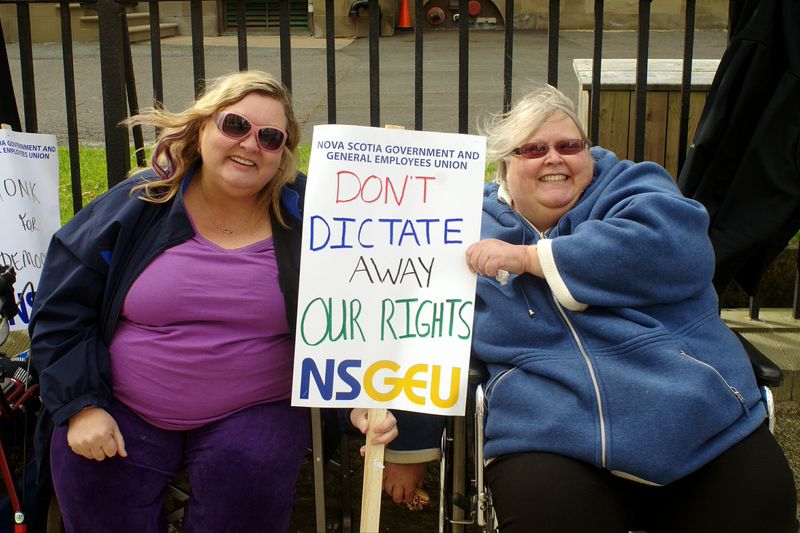After weeks in mediation, a settlement could not be reached between Nova Scotia’s four health-care unions and acute care employers.
With the help of mediator James Dorsey, the talks intended to help the parties involved reach consensus on how to accommodate Bill 1.
The legislation, introduced by the Liberal government on October 3, will amalgamate the province’s health district authorities. By reducing the number of bargaining units in acute care from 49 contracts to four contracts, the Bill will re-assign union members to unions not necessarily of their choosing.
The four unions — Unifor, the Nova Scotia Government and General Employees Union (NSGEU), Canadian Union of Public Employees (CUPE) and the Nova Scotia Nurses’ Union (NSNU) — have all argued that the Liberal government is using the Bill to create tensions between the unions and undermine labour power in the health-care sector.
“We find ourselves in a situation created by a government bent on not only undermining unions, but also the stability and quality of the public health-care system on which Nova Scotians rely,” said Unifor’s Atlantic Director Lana Payne in a press release.
The unions’ counter-proposal has been to create multi-union bargaining councils that would allow each union to continue to represent its own members and, in council with the other unions, bargain the four collective agreements the government demanded. The bargaining association model has been successfully employed for public sector mergers in both Saskatchewan and British Columbia.
When speaking to the Halifax Media-Co-op, NSGEU President Joan Jessome accused the NSNU of undermining labours’ united front during the mediation talks. According to Jessome, the NSNU informed the other unions that they wanted to move to arbitration, which would all but rule out the possibility of developing a bargaining council model.
Prior to the Bill’s passing, similar allegations had been made against the NSGEU by the other unions when the NSGEU momentarily suggested that they would be willing to accept run-off votes to determine which union represented each of the four bargaining units.
Given the stipulations of the Bill, nurses who are currently members of the NSGEU will likely be transferred to the NSNU.
In a press release, CUPE Acute Care Co-ordinator Wayne Thomas points out that mediation was doomed to fail because the unions stand to lose a lot while the employers do not.
“The way this bill is structured meant that the employer had zero reason to come up with a mediated settlement, since they weren’t vulnerable in any way,” said Thomas. “Thanks to this bill, HANS (Health Care Associations of Nova Scotia) knew they could simply sit back and wait for the arbitration phase, where the Act spells out in detail what will happen, with the unions having no say in the matter.”
A 45-day arbitration period begins today. Mediator James Dorsey is expected to render his decisions by January 1, 2015.
Ella Bedard is rabble.ca’s labour intern. She has written about labour issues for Dominion.ca and the Halifax Media Co-op and is the co-producer of the radio documentary The Amelie: Canadian Refugee Policy and the Story of the 1987 Boat People. She now lives in Toronto where she enjoys chasing the labour beat, biking and birding.
Photo: Unifor Atlantic



